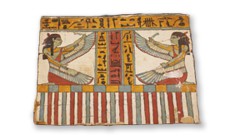Global Trade in Stolen Culture and Nature as Neocolonial Hegemony
Mackenzie, S., Hübschle, A. and Yates, D. (2021) ‘Global trade in stolen culture and nature as neocolonial hegemony’, in Blaustein, J., Fitz-Gibbon, K., Pino, N.W. and White, R. (eds) The Emerald Handbook of Crime, Justice and Sustainable Development, Emerald Publishing Limited, pp. 419–436.
In this chapter, we first argue for a green criminological perspective on culture as well as nature, as those concepts are framed in the United Nations Sustainable Development Goals. Second, from within this green criminological perspective we discern a neocolonial hegemony in the resource extraction from developing countries that is represented by international trafficking markets in looted cultural heritage and poached wildlife. In other words, developed nations benefit from these trades while developing nations suffer, and governance regimes attempting to control these global criminal trades prioritise the rational interests and cultural norms of the more powerful market nations over the local interests and cultural histories of communities at the source of the chain of supply. Finally, our third argument is that the emerging intellectual framework of sustainable development, as represented in the UN’s goals, may provide a perspective on the issue of trafficking culture and nature that can push back against the neocolonial hegemony of international criminal markets such as these.
Publisher: https://www.emerald.com/insight/content/doi/10.1108/978-1-78769-355-520201023/full/html
